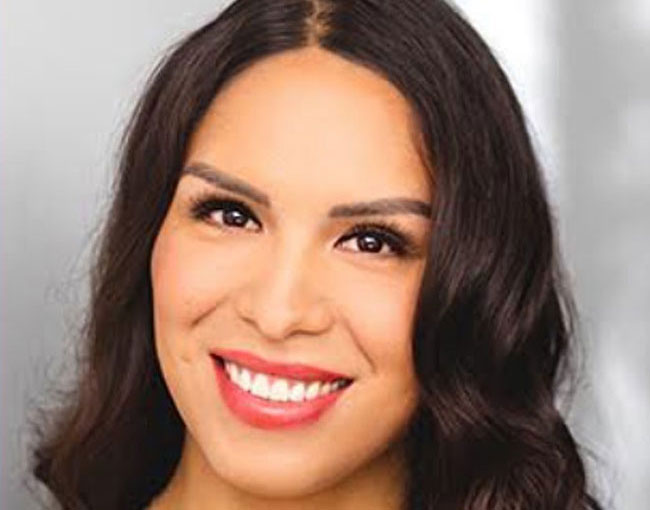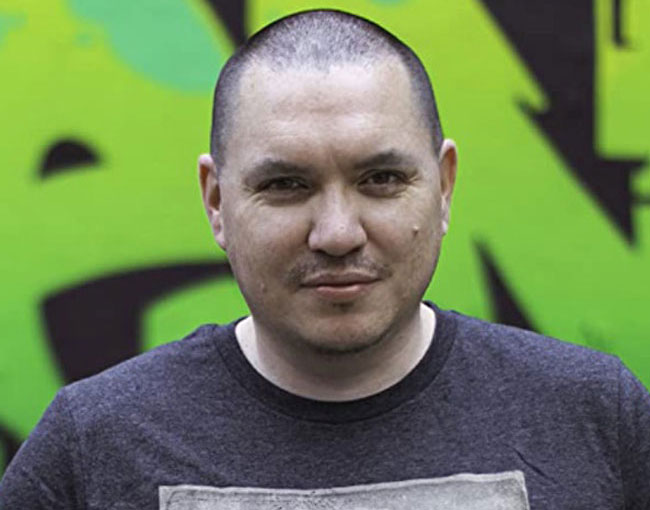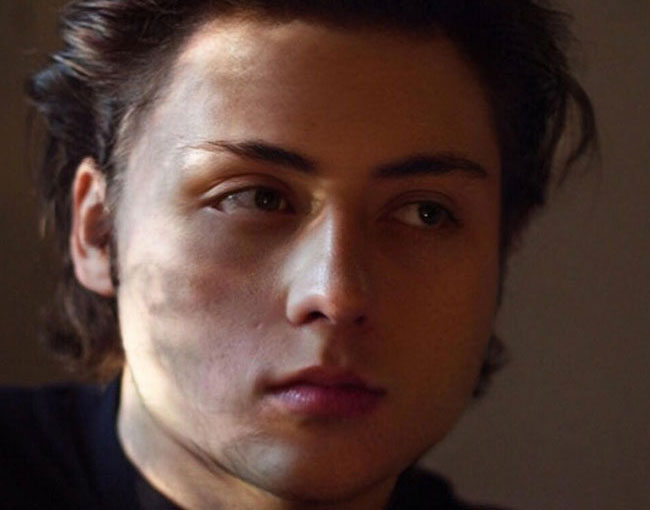Panel of Indigenous Filmmakers Tackle Topic of Cinema as a Form of Social Protest
BIPOC TV & Film recently gathered a panel of Indigenous filmmakers to engage in a dialogue about activism in the industry.
Presented in partnership with Toronto Film School, Cinema as a Form of Social Protest was moderated by Hotinonhshón:ni Mohawk multidisciplinary artist Kiley May, and featured commentary from a panel including: multidisciplinary Mi’gMaq artist Jeff Barnaby; Kahnawà:ke Mohawk actor and filmmaker Kawennáhere Devery Jacobs; and Mi’kmaw actor and filmmaker – and Toronto Film School graduate – Tim Myles.
Over the course of the nearly two-hour virtual event, the panelists engaged in a lively discussion about representation/misrepresentation of Indigenous people on screen, how they choose to incorporate their respective cultures into their films, and what first spurred them to incorporate activism into their projects, among many other topics.
“I feel like, as Indigenous people, we have storytelling woven into our identities and our culture. We use storytelling to pass on teachings and knowledge…to record agreements and history, and even for governance and politics,” May said.
“So, as artists and filmmakers and actors, I feel…we kind of understand the potential for political activism in our work, such as protecting our language and culture, or defending our traditional rights, speaking to our history and the agreements of our lands, and, of course, all of the things we’ve survived and been through.”
Jacobs said it was the experience of discovering that a female client she’d worked with at the Native Women’s Shelter of Montreal had ended up on the list of Missing and Murdered Indigenous Women that prompted her to begin writing and directing.
“It was at that moment that I decided to connect the two pieces of film and activism in relation to our communities and move forward in this medium with that,” said Jacobs, whose directorial debut, STOLEN, offers a glimpse into a typical Native girl’s life before becoming one of more than 1,200 Missing and Murdered Indigenous Women in Canada.
For 2020 imagineNATIVE + LIFT Mentorship Grant recipient Myles, who graduated from Toronto Film School’s Acting for Film, TV & the Theatre program in 2016, not seeing himself represented on screen as a kid was what compelled him towards pursuing a career in the industry.
“Growing up there was, honestly, a lot of whitewashing within the Indigenous films, or the films that I saw, which is why I think it’s important now that we’re changing the narrative and the relationship that we have with film in the past – because I’ve only recently seen Indigenous films made by Indigneous people,” said Myles, a member of Miawpukek First Nation who’s currently to developing his debut film, Little Bird – a semi auto-biographical story about losing his mother in 2013.
“I was lucky enough to go to the ImagineNATIVE Film Festival when we were able to go out and see movies, and I think that now, more than ever, it’s so important to get away from the stereotypes that we’ve seen in the past.”
For Barnaby, language has always proven a touchstone for incorporating his culture into his films, which are known for defying stereotypical treatments of First Nation’s narratives by using horror/sci-fi tropes to explore themes of violence, gender, race and indigenous futurism.
“There’s been Mi’gMaq in every single one of my films, and that’s always been the way that I include where I’m from in my films. I think the cool thing about it, is it’s really flexible,” he explained.
“I find you can add Mi’gMaq or Mohawk or whatever it is you speak in any film…and it’s a good way to add a piece of your culture without really compromising the views of your film. And that’s really what you’re trying to do as a creator – you’re trying to balance your own creativity with the respect you have for where you’re from and who you are.”
About the Cinema as a Form of Social Protest panelists:

Kiley May is a Hotinonhshón:ni Mohawk multidisciplinary artist from Six Nations reserve and is now settled in Toronto. She is an actor, screenwriter, educator, public speaker and author of the upcoming book How To Love A Trans Girl.
She has a recurring role on the hit CBC show Coroner and has recently appeared in IT Chapter Two, Woman Dress and the upcoming Queer Haircuts For Everyone.
Being an Indigenous transgender woman, May is passionate about education, representation, and diversity. As an emerging screenwriter and filmmaker, she is working on creating scripts and roles for Indigenous and transgender women, focusing on positive, empowering and authentic portrayals.
She also does political education and awareness work through public speaking, workshops, facilitation, consultation and training in the areas of two spirit, LGBTTQQI, Indigenous LGBTTQQI, and transgender communities, identities and histories.

Jeff Barnaby was born and raised on the rural Mi’gMaq reserve of Listuguj Quebec. A multidisciplined artist, he has won several awards for his artwork, poetry, short stories, music and films. His work provides a bare-knuckled view of post-colonial Mi’gMaq life, defying stereotypical treatments of First Nation’s narratives by using horror/sci-fi tropes to explore themes of violence, gender, race and indigenous futurism.

Tim Myles is a Mi’kmaw actor and filmmaker originally from Newfoundland with roots in the Miawpukek First Nations. Upon moving to Toronto in 2014 and graduating Toronto Film School with honours, Myles went on to direct multiple music videos for artists such as Indigenous rock group Crownlands, Banners, Tilsen, and Métis pop artist Indigo. He has worked with Universal Music and Island Records, and his most recent project for Crowndlands, titled End of the Road, was a tribute to the missing and murdered Indigenous women on the Highway of Tears. He appeared on the docu-series Going Native about being a young, Two-Spirit filmmaker, which will appear on Aboriginal Peoples Television Network in fall 2021. Myles was just awarded the 2020 imagineNATIVE + LIFT Mentorship Grant in partnership with NETFLIX to develop his debut film, Little Bird, which is a semi auto-biographical story about losing his mother in 2013.

Kawennahere Devery Jacobs is a film/television actress and filmmaker who was born and raised in Kahnawà:ke Mohawk Territory, which has shaped her passion for Indigenous rights activism and interest in politically charged roles in film.Her debut leading role in the award-winning feature film, Rhymes for Young Ghouls, resulted in Jacobs being nominated for a Canadian Screen Award. Jacobs also won Best Performance in a Canadian Film at the Whistler Film Fest and Best Actress at the American Indian Film Fest for her work in the feature film, The Sun at Midnight, and has completed production on her third leading role in the feature film, The Road Behind.
Jacobs played a supporting character in season three of the hit-series Cardinal, a series regular on Netflix’s The Order, and made an appearance on Amazon/Starz’s American Gods.
Jacobs has explored also the other side of the camera, with her directorial debut of the short film STOLEN, which won Best Aboriginal Film at the 2017 Yorkton Film Festival. Jacobs’ second short film, Rae, garnered Best Youth Work prize at the ImagineNATIVE Film Festival and was an official selection at the Palm Springs Shortfest.


